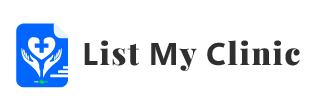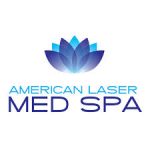
How a Post-Master’s Family Nurse Practitioner Program Can Advance Your Career
For nursing professionals who aspire to take on greater responsibilities and have a profound impact on patient care, pursuing a post-master’s Family Nurse Practitioner (FNP) program is a worthwhile investment. This advancement not only equips nurses with the skill set required for specialized practice but also opens doors to leadership roles and a broader scope of practice. Individuals seeking to enhance their credentials and expertise will find this pathway especially rewarding. If you’re contemplating the next step in your nursing career, considering a post-master’s FNP program online could be the catalyst for change. Below, we explore how such an educational pursuit can lead to career growth.
Exploring the Benefits of a Post-Master’s Family Nurse Practitioner Program for Career Growth
A post-master’s FNP program offers nurses higher earning potential and job security by refining clinical skills and theoretical knowledge. The program focuses on a family-centered approach to healthcare, preparing nurses to deliver comprehensive care to patients of all ages. Completion of this program signifies a commitment to excellence and often leads to higher positions in the healthcare field.
Graduates are recognized for their advanced practice status and are sought after by employers. Online programs allow nurses to balance work, life, and education, making advancement achievable without pausing their careers. Eligibility for certification and licensure as a family nurse practitioner enhances their professional profile and autonomy in decision-making.
Advancing Clinical Expertise with a Post-Master’s FNP Qualification
A post-master’s FNP program equips nurse practitioners with the necessary skills to navigate complex healthcare scenarios. This program emphasizes clinical reasoning, diagnostic skills, and evidence-based practice, enabling graduates to integrate research findings into patient care. FNPs gain proficiency in advanced medical technology, pharmacological principles, and managing chronic conditions, enabling them to lead in complex patient care situations.
The program also includes extensive clinical practicums, providing real-world experience in diverse healthcare settings. This hands-on training prepares nurses to operate autonomously upon graduation and respond adeptly to healthcare crises, ensuring they can contribute to public health and emergency response teams.
Strengthening Leadership Skills and Employment Opportunities for FNPs
A post-master’s FNP program focuses on leadership development, preparing nurses to become change agents in healthcare institutions. These programs often include modules on healthcare management, preparing them for supervisory or administrative roles. The employment landscape for FNPs is robust, with increased demand due to healthcare industry growth and a focus on preventive care.
Graduates often find themselves in leadership roles, overseeing teams or departments. The degree can also serve as a steppingstone for those seeking careers in academia or research, allowing FNPs to educate the next generation of nurses. Career opportunities have expanded beyond healthcare to business, educational organizations, and technology sectors.
The Impact of Specialized FNP Education on Patient Care Quality
Post-master’s FNP program online options equip nurses with advanced skills to deliver holistic and individualized care, improving patient outcomes. With training in chronic disease management, diagnostic procedures, and long-term treatment planning, FNPs play a critical role in addressing complex health needs while reducing hospital readmissions and healthcare costs.
These programs also emphasize quality improvement and preventive care. FNPs use patient data to refine interventions, stay updated on new treatments, and educate patients on lifestyle changes and health screenings. By promoting prevention and health awareness, they help build a healthier society.
Networking and Professional Development in Post-Master’s FNP Programs
Post-master’s FNP programs offer numerous networking opportunities, fostering connections with fellow nursing professionals, faculty, and healthcare thought leaders. These interactions can lead to collaborations, job opportunities, and mentorships, influencing one’s career trajectory. Professional development is emphasized through seminars, workshops, and conferences, providing FNPs with the latest insights into healthcare advancements.
Online learning platforms, such as virtual symposia and discussion forums, extend networking beyond geographical boundaries. The digital era also offers the advantage of online learning platforms, allowing FNPs to engage with experts worldwide. The continuous learning environment in these programs encourages continuous skill refinement, staying updated with medical innovations, and adopting best practices, ensuring a lifetime of growth and achievement.
Overall, a post-master’s Family Nurse Practitioner program offers invaluable opportunities for nurses seeking to elevate their clinical practice, attain leadership roles, and make a meaningful impact on the quality of patient care. By fostering a combination of advanced clinical acumen, leadership aptitude, and a culture of continuous improvement, FNPs are positioned to become pivotal healthcare providers in the ever-evolving medical landscape.

How to increase NAD+ Levels?
NAD+ is a critical component for each cell in the body and for overall health and physiological functions. However, NAD+ levels decline over time due to various factors, leading to undesirable consequences if not replenished. So, how can you increase NAD+ levels? Find out in this article.
What is NAD+ Level?
NAD+ (nicotinamide adenine dinucleotide) is an essential coenzyme that provides energy to cells. It also plays a crucial role in basic metabolic processes, ensuring the body functions effectively. The simplest and most effective way to supplement NAD+ is through its precursors, nicotinamide mononucleotide (NMN) and nicotinamide riboside (NR).
NAD+ levels measure the amount of NAD+ in the body. The ideal NAD+ concentration in mammalian cells (including humans) ranges from 200 to 500 μM but can vary from 10 to 1000 μM [1]. However, signs of aging gradually appear as NAD+ levels decline over time. Additionally, when the body is ill, NAD+ levels drop significantly.
Role of NAD+ in Human Body
NAD+ is indispensable for the body, offering several prominent benefits:
- Energy Production: Maintaining appropriate NAD+ levels ensures the body has enough energy to function throughout the day without fatigue.
- Health and Resilience: Stable NAD+ levels enhance overall health, boost immunity, and aid in repairing both external and internal DNA damage.
- Homeostasis: NAD+ helps maintain cellular homeostasis, ensuring stable and disorder-free bodily functions.
- Protection: Adequate NAD+ levels provide a robust defence mechanism due to their strong antibacterial and anti-inflammatory properties.
- Insulin Sensitivity: NAD+ improves insulin sensitivity, helping to prevent insulin resistance, a leading cause of diabetes.
How to Increase NAD+ Levels
Increasing NAD+ levels naturally is a goal for everyone. Here are some useful tips:
Exercise
Regular exercise for 60 minutes each day is one of the easiest ways to naturally increase NAD+ levels. When your cells are active, they stimulate more NAD+ production to provide timely energy. Additionally, regular physical activity improves overall health, effectively preventing minor illnesses. Besides, physical exercise helps maintain a healthy weight and enhances cardiovascular health, reducing the risk of chronic diseases such as heart disease and diabetes.
Limiting sun exposure
Frequent exposure to sunlight (UV rays) without adequate protection can accelerate aging. Continuous exposure to UV rays increases the risk of skin damage, requiring more NAD+ to repair the damage. As the demand for NAD+ exceeds its production capacity, levels decline significantly and become difficult to recover. Using sunscreen, wearing protective clothing, and seeking shade can help protect your skin and preserve NAD+ levels.
Seek the heat
Although excessive sunlight can be harmful, avoiding it entirely is not advisable. Moderate sun exposure, especially in the morning when UV rays are weaker, helps the body absorb vitamin D, strengthening bones and boosting immunity. Spending a short time sunbathing daily can also contribute to naturally increasing NAD+ levels. Enjoying the sun safely can benefit your well-being and support your body’s natural processes.
Dietary changes
Building a scientifically balanced diet is the most effective way to enhance health. Ensure you consume the four essential nutrient groups, proteins, carbohydrates, fats, and vitamins-minerals, while diversifying food sources within each group. Include foods beneficial for increasing NAD+ levels, such as milk, avocados, fish, peanuts, and whole-grain bread. Eating various nutrient-rich foods supports overall health and helps maintain optimal NAD+ levels.
NAD+ Supplements
Taking NAD+ supplements is a suitable way to naturally boost NAD+ levels. These supplements are carefully researched and formulated to enhance NAD+ levels effectively. Supplementing with NAD+ precursors, such as nicotinamide mononucleotide (NMN) or nicotinamide riboside (NR), eliminates the need for users to calculate daily dosages, as they follow the manufacturer’s recommended serving sizes.
By combining these methods, you can effectively increase your NAD+ levels, enhancing your energy, reducing the signs of aging, and promoting overall health. If considering NAD+ supplements, consult a healthcare professional for personalized advice and a safe usage plan.
If you’re unsure which NAD+ boosting product is good for your health, consider Vinatura Supplement 1000mg. This highly pure supplement contains only NAD, with no other ingredients. It is designed as a daily dosage capsule, making it easy to absorb and digest. Additionally, the product has been third-party tested and is manufactured at an FDA-approved facility, ensuring high safety and minimizing health risks.
What to Look for When Buying NAD+ Supplements
When choosing NAD+ supplements, consider the following criteria:
- Quality and Purity: Prioritize NAD+ supplements with the highest purity (ideally 100%), free from additives and allergens. This ensures the product is of high quality and maximally safe for users. Additionally, check whether the ingredients are carefully processed (look for third-party certification) and whether the manufacturing facility meets standards (FDA approval).
- Bioavailability: Opt for products containing easily absorbable NAD+ precursors. NMN (nicotinamide mononucleotide) and NR (nicotinamide riboside) are ideal NAD+ versions, as they are easily absorbed by the body and not wasted.
- Dosage: It is recommended to supplement 250 to 1,000 mg of NAD+ daily through dietary supplements. Ensure the supplement you choose can meet these requirements.
- Price: The price of NAD+ supplements on the market varies widely, from tens to hundreds of dollars. Choose a product that fits your budget and meets your personal needs.
- Customer Reviews: Read feedback from actual users to understand the supplement’s effectiveness and their level of satisfaction. Additionally, this helps you determine if the product is suitable for you based on experiences shared by users with similar conditions.
Conclusion
Hopefully, this article has provided insights into how to naturally increase NAD+ levels, ensure sufficient energy, reduce signs of aging, and prevent various health issues. If considering NAD+ supplements, consult a doctor for detailed advice and a safe usage plan.









